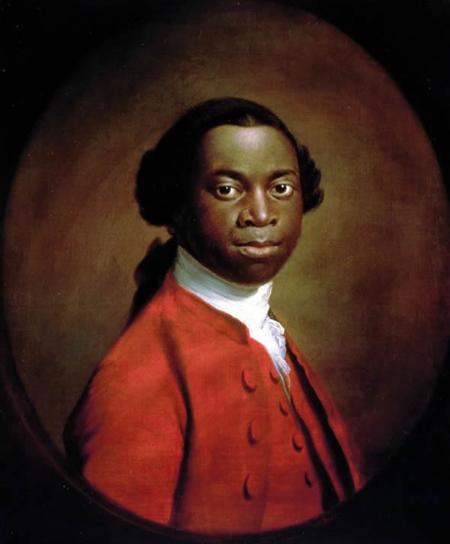Monday, July 13: The Scribbler
COLORFUL LANGUAGE
by James Lincoln Warren
By the time the Gentle Reader peruses this article, I will be in South Africa, vacationing with my father. The trip is the fulfillment of a long-time dream. I have been fascinated with the continent ever since I saw my first Tarzan movie and watched Louis Leakey and Jane Goodall on National Geographic TV specials. One of my favorite places when I spent my junior high years in Belgium during the late 60s was the Royal Museum for Central Africa (RMAC). My favorite dioramas in natural history museums are always the ones showing the veldt or the rain forest.
My main interest in this trip is, I confess, the wildlife and the scenery. But there is also the siren song of history, and it would be disingenuous not to admit that the true darkness of the so-called Dark Continent has a name: racism.
Edgar Rice Burroughs informed us that “Tarzan” is Mangani (ape language) for “white skin”. To be honest with you, when I was a kid I had no clue that the whole Tarzan milieu was so demeaning to blacks—the white man raised by apes is superior in every way to the black human natives, more resourceful, stronger, handsomer—he’s even more civilized, being an English lord. I didn’t realize that the Great White Hunter as celebrated by H. Rider Haggard is an image that mythologizes white superiority. But I learned.
The above-mentioned RMAC was as eloquent documenting the inhumanity of colonialism as it was displaying the richesse of western African ecology. The story of Nelson Mandela’s triumph over seemingly insurmountable odds is a testament to human dignity everywhere. But it is not my purpose to plead for tolerance and goodwill. I’m a writer, and my concern is how race is portrayed, or ought to be portrayed, in fiction.
One of my recurring characters in the Treviscoe series, Africanus Hero, is a former slave. When I researched the character, I pored over accounts of the lives of 18th century slaves and former slaves. A particularly valuable resource, not just because of its length and rich personal detail, but also because it dealt with the lives of blacks in 18th century London, was The Interesting Narrative of the Life of Olaudah Equiano, or Gustavus Vassa, the African, 1789. But although Hero has a lot in common with Vassa, he is not Vassa.

My contemporary P.I. series, the “Cal Ops” stories, deals with a multi-racial detective agency in Los Angeles—the two lead characters are both European-American white men, but the agency has Latino, Asian-American, African-American and Ashkenazic Jewish operatives. Each of the stories prominently figures at least one of the subordinates.
So how do I, a middle-aged white Protestant male, write about persons of color? Is it even right that I attempt to do so, given that my experiences are not their experiences, and that they have suffered indignities I have never suffered?
Of course it is right. As far as I’m concerned, there is only one race, the human race. If someone does not attempt to engage the entire human condition, to stretch one’s imagination to embrace the injustices and experiences of all people irrespective of our obvious differences, then one truly is guilty of racism, of separating himself from the entire world by facile and artificial criteria.
How do write about my non-white characters? I write of them as unique individuals informed by their life experiences. The same as every other character. I may not know from experience what it means to be black, Asian, or Latino—but I know what it is to be prejudicially judged by the intellectually blind, and I know about pain, loss, anger, and love. I know that dignity comes from within and not from without.
And that’s my job.




















Hmmmm, interesting article.
We are all human. It is most often when people of different races (or ethnical backgrounds or whatever) come together that the word “racism” comes up . . . though, thankfully, not as often as it used to throughout history. In that regard, mankind has made a huge progress. It is all in the encounter of one individual with another, the relationships between people of different backgrounds, traditions, values, beliefs. How we perceive others. How we think to be perceived by others. “Racism” is only a factor if we allow it to be a factor. Every human needs clean air to survive, needs nutritious food, needs to be loved and to love others, needs some kind of shelter. Every human is unique. The only thing we can do is to strive to perceive others with respect, insight, and understanding that they deserve. Fight against prejudice and cliches, and fight FOR social justice and equality. The importance of this last cannot be emphasized enough, in my opinion—always.
PS Have a wonderful stay in South Africa, James!
Dare I confess that I also liked the Tarzan movies when I was growing up. Of course, there were no black heroes in the movies at the time, so we cheered the guys in the white hats and booed those in the black hats.
A writer must be able to create characters of all races and ethnic backgrounds. People’s needs are pretty much the same no matter their race. The only requirement is that the characters be convincing.
James, when you return, I expect an exciting article from you about South Africa.
Have a great time.